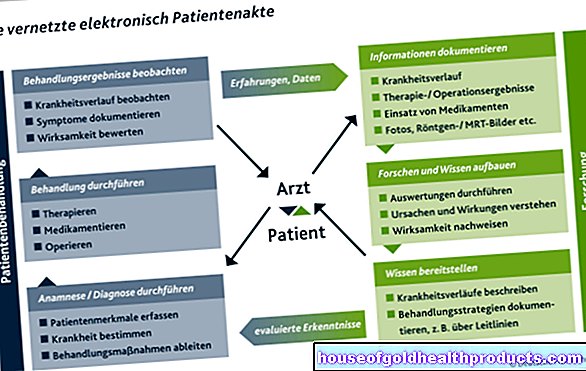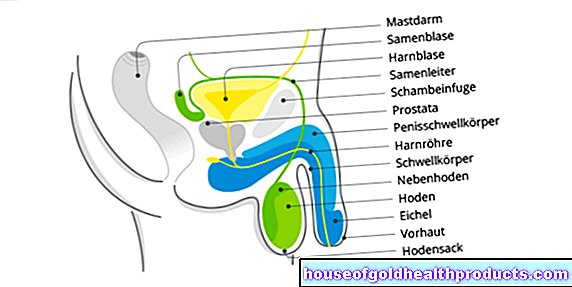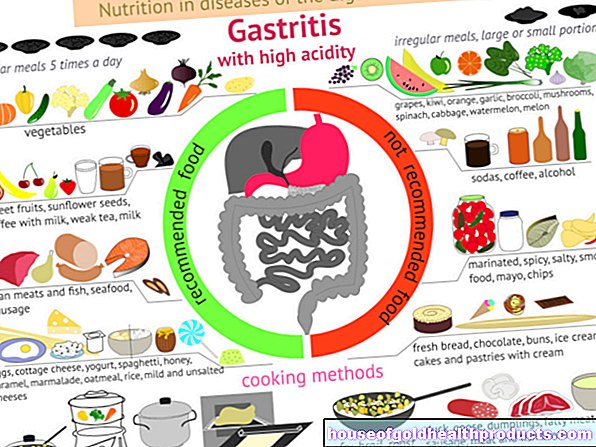Diabetes: changes in the packaging of genetic material
All content is checked by medical journalists.MunichType 2 diabetes can have hereditary causes, this has been known for a long time.Swedish researchers have now discovered that the packaging of the DNA also plays a role. And that can be influenced, for example with newly developed drugs.
Our genetic material is packaged in a three-dimensional structure. This so-called epigenetics decides which genes are actually read and it is influenced by the environment. To what extent it also plays a role in the development of type 2 diabetes, researched scientists led by Charlotte Ling from Lund University. They examined insulin-producing cells from healthy people and people with type 2 diabetes. The result: the researchers discovered around 800 epigenetic differences. In about 100 genes the activity was reduced in the diabetics. This could contribute to decreased insulin production - the immediate cause of the disease.
Risk factors affect the structure of DNA
To find out what is hen and what is egg, the scientists started a second experiment. They analyzed the cells of subjects with a high risk of diabetes but who had not yet been diagnosed. In doing so, they found some epigenetic changes in people with an increased BMI or advanced age that they had also discovered in type 2 diabetics. This means that the changes in the genetic material are not the result of the disease, but a factor that could also trigger adult-onset diabetes.
"The discovery offers opportunities to develop new drugs against type 2 diabetes," says Ling, because epigenetic changes can be reversed. There are already pills against diseases such as cancer or epilepsy that influence epigenetics. Ling: "We can also find other possible risk factors by examining epigenetics."
Sugar attacks the blood vessels
Type 2 diabetes is the most common metabolic disease - around 5.4 million adults in Germany live with diabetes. Patients can no longer properly utilize carbohydrates such as sugar. The result is an increased blood sugar level. If this is not treated, it damages the blood vessels in the long term and leads, among other things, to arteriosclerosis. Older and overweight people are particularly often affected. (away)
Source: Ling C. et al .: Genome-Wide DNA Methylation Analysis of Human Pancreatic Islets from Type 2 Diabetic and Non-Diabetic Donors Identifies Candidate Genes That Influence Insulin Secretion, PLOS Genetics, 2014
Tags: prevention organ systems tcm





























